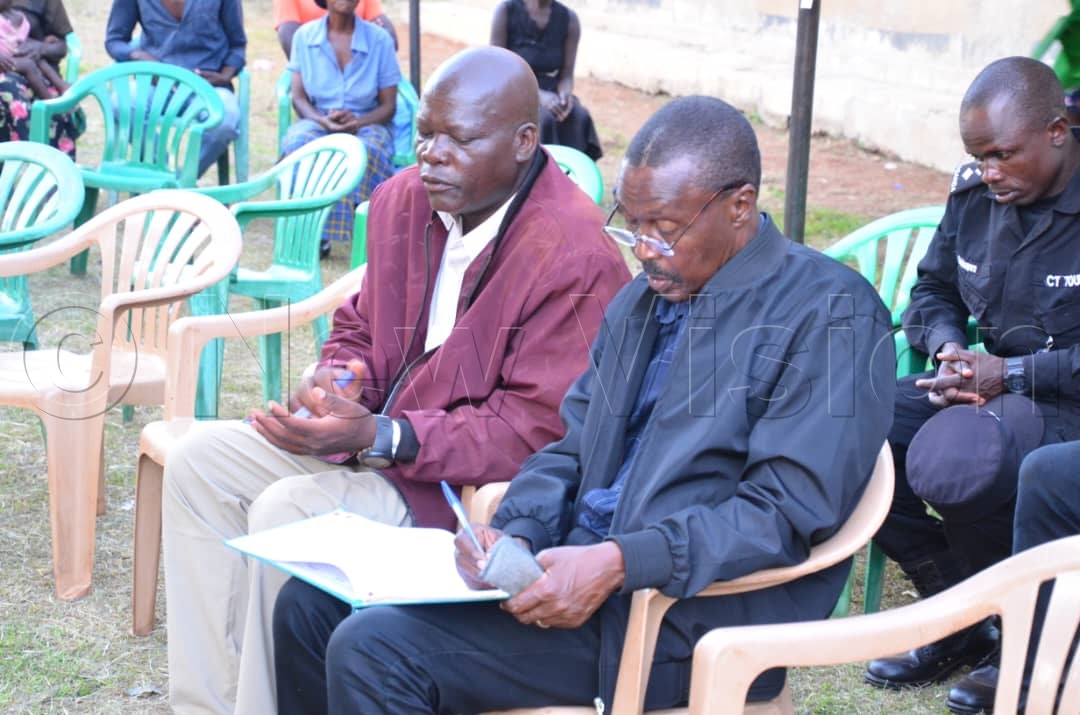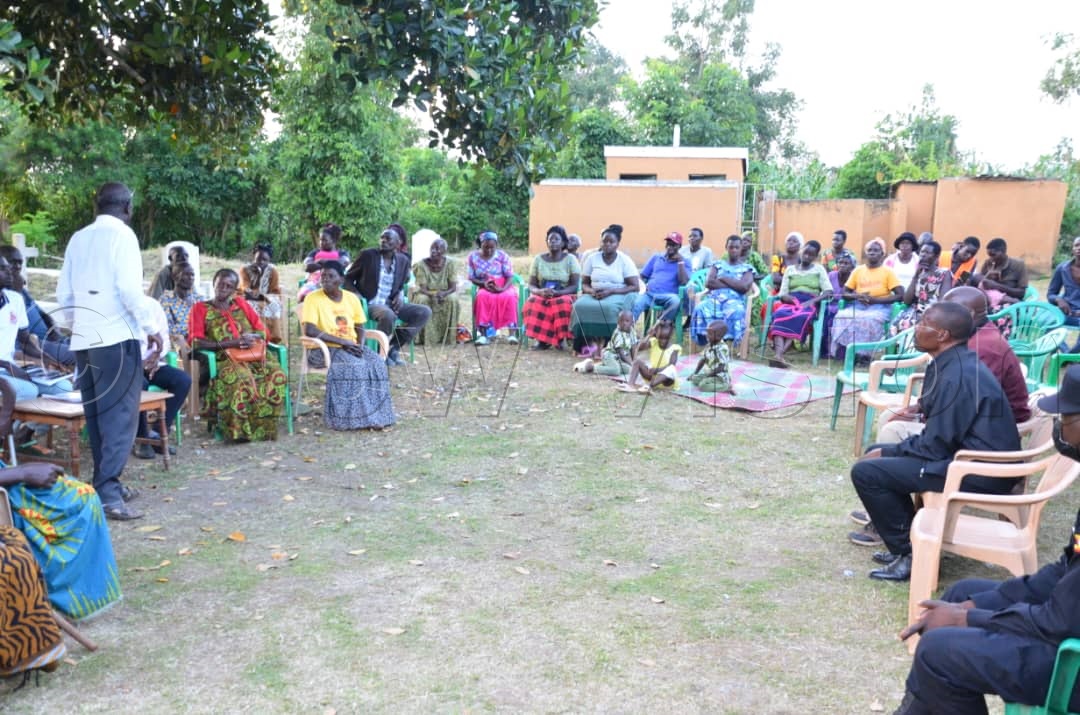Celebrating Life
Muntu eulogises fallen Lango paramount chief Odur
Delivering a heartfelt eulogy for the late Odur during an impromptu visit to the family, Muntu, on his campaign trail in the Lango region at Teboke village, Teboke parish, Teboke sub-county in Apac district, hailed him as the pillar of unity in the region.
The late Lango paramount chief (Won Nyaci) Yosam Odur Ebii. (Credit: Stuart Yiga)
By: Isaac Nuwagaba, Journalists @New Vision
_______________
Presidential aspirant Maj. Gen. (rtd) Mugisha Muntu stood solemnly before a sea of mourners on November 12, 2025, to praise a legacy of unity and service that was exhibited by the late Lango paramount chief (Won Nyaci) Yosam Odur Ebii.
Delivering a heartfelt eulogy for the late Odur during an impromptu visit to the family, Muntu, on his campaign trail in the Lango region at Teboke village, Teboke parish, Teboke sub-county in Apac district, hailed him as the pillar of unity in the region.
Muntu, who is the Alliance for National Transformation party flag-bearer, highlighted Odur’s humility and resolve.
Muntu signing in the visitors book. (Credit: Stuart Yiga)
“He never let power divide us. Even when faced with court orders and political pressure, he chose dialogue and the rule of law,” he said, referencing the contentious court case that temporarily halted his recognition as paramount chief.
Muntu, fresh from a whirlwind campaign tour across the region, recalled the chief’s “unwavering dedication to the unity of the Lango people and his selfless service to Uganda.”
He described Odur as a “beacon of peace” whose leadership steered the Lango Cultural Foundation (LCF) through turbulent times, including recent disputes over succession that saw rival claimants contest his legacy.
“It is this man who organised everybody for the restoration of the culture of Langis when he was still the ‘Awitong – clan leader’ head.

Muntu with mourners as he paid tribute to (Credit: Stuart Yiga)
Born in the early 1920s, Yosam Odur Ebii rose to prominence as a respected elder and unifier in Lango, and in 2003, he was enthroned as the Won Nyaci of the LCF, becoming the official cultural head of the people of Lango.
Muntu pledged to honour Odur’s legacy by championing policies that strengthen local governance and empower cultural institutions. “We will increase funding for local governments and newly created cities to improve service delivery, just as Chief Odur envisioned, a united Lango where every child has access to quality education and healthcare,” he declared.
As mourners paid their respects, Muntu reiterated his campaign promise to revive Uganda’s cooperative movement, noting that collective action could lift Lango farmers out of budget constraints, a cause close to Odur’s heart of ensuring food security and fight poverty in the region.
“Together, we will build a prosperous Lango, true to the values he embodied. He was a leader who galvanised Lango through turbulent times of post-war recovery by the Lords’ Resistance Army and reconciliation in the region,” Muntu concluded.
Grandson narrates his last days
Isaac Ogwang, the grandson and the director of Okwere Memorial Nursery and Primary School, who spoke to New Vision Online, disclosed that Odur left his home on Friday last week for a medical review at the Lira University Teaching Hospital after feeling unwell due to old age.
“He died on Monday at about 11:00am under the care of his eldest son, Anthony Olobo Odur and shall be laid to rest on Saturday, November 22, 2025, at his ancestral home with the government granting him an official burial as the fallen King,” he confirmed.
“When he reached the hospital, he was told that his health needed to rest before he was enrolled in treatment. He was weak and he died at the age of 99 years and we thank God for his life,” Ogwang said.
Mzee Yosam Odur Ebii is survived by several children, grandchildren, and great-grandchildren. His wife, Imat Victoria Agong, passed on in 2011.
The context of Lango chiefdom with the 1967 crisis
The Lango region was a non-kingdom area that supported former Prime Minister and President, Milton Obote, during the 1967 crisis, which ultimately led to the abolition of all traditional kingdoms and chiefdoms in Uganda.
According to Ogwang, the independent Uganda of 1962 was a 'parcel of contradictions,' with a federal status for the powerful Buganda kingdom, semi-federal status for other kingdoms, and unitary district status for non-kingdom areas like Lango.
“Obote was from the Lango ethnic group. The Lango, unlike the centralised kingdoms, traditionally lacked a single central tribal authority; instead, we had a system based on clan and lineage leaders, with a temporary martial leader (Won Nyaci) for specific goals like warfare or raiding.
As Obote's home region and a non-kingdom area, the Lango political elite generally supported his vision for a centralised, republican state.
“The existing Lango leadership structure was largely based on colonial-appointed chiefs, who were more easily integrated into a centralised administrative system than the deeply entrenched traditional monarchies,” he observed.
With Obote’s 1967 constitution, it effectively ended the formal political power of all traditional institutions, including the Lango 'chiefdom' structure, in favour of a unitary, republican state.
“Traditional authority in Lango experienced a 'downward trajectory' during this period, with the office of the Paramount Chief becoming largely a cultural and ceremonial role rather than a political one, a situation that largely persists even after the formal restoration of kingdoms as cultural institutions in 1993,” he elaborated.